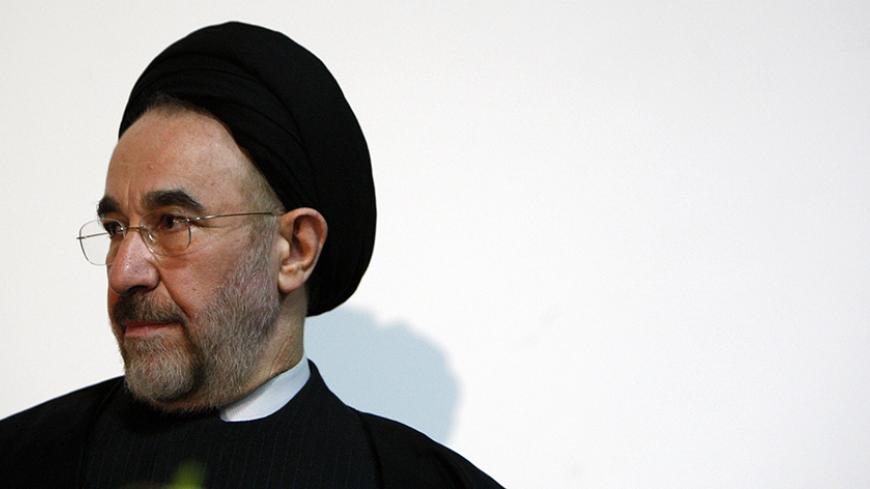With the advent of President Donald Trump, Iran finds itself on familiar ground: facing sanctions over its missile programs and an American president who is promising “all options are on the table.” With the Trump administration, the possibility of direct military conflict seems more likely. Former President Barack Obama’s outreach to Iranian leaders and his assurances that the United States was not interested in regime change assuaged fears such that Supreme Leader Ayatollah Ali Khamenei consented to a nuclear deal and limited bilateral negotiations. Trump’s hard line against Iran not one month into his presidency, however, will force Iran’s leaders to recalibrate the best strategy to respond to this burgeoning threat domestically. And voices in Iran who are in favor of de-escalation will need to try much harder to make themselves heard.
One of those voices will certainly be former President Mohammad Khatami. During a speech to war veterans and former prisoners of war Feb. 7, Khatami called for “national reconciliation” given that Iran is facing an uncertain future with a Trump presidency. The Reformist president who led Iran from 1997 to 2005 described Trump’s mentality as “very extreme, harsh and quarrelsome.” He warned that the combination of Trump and Republican control of Congress poses “problems and dangers” for Iran.



